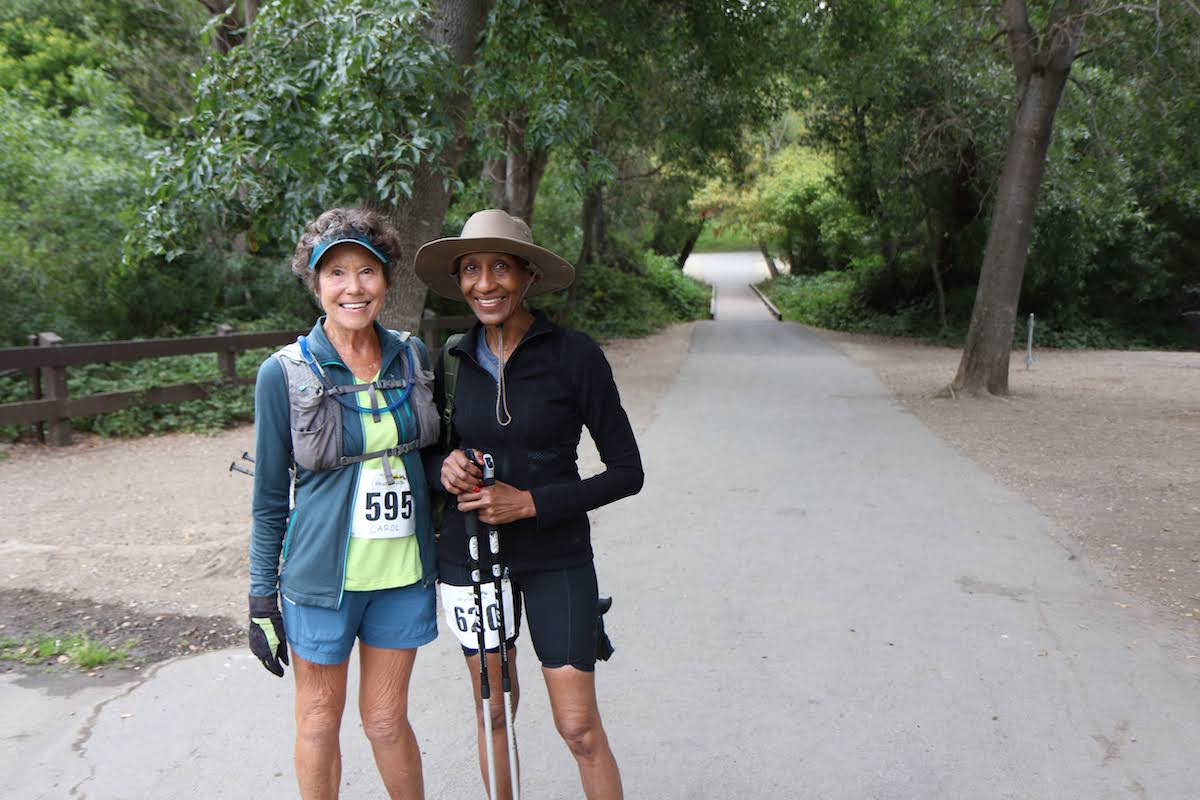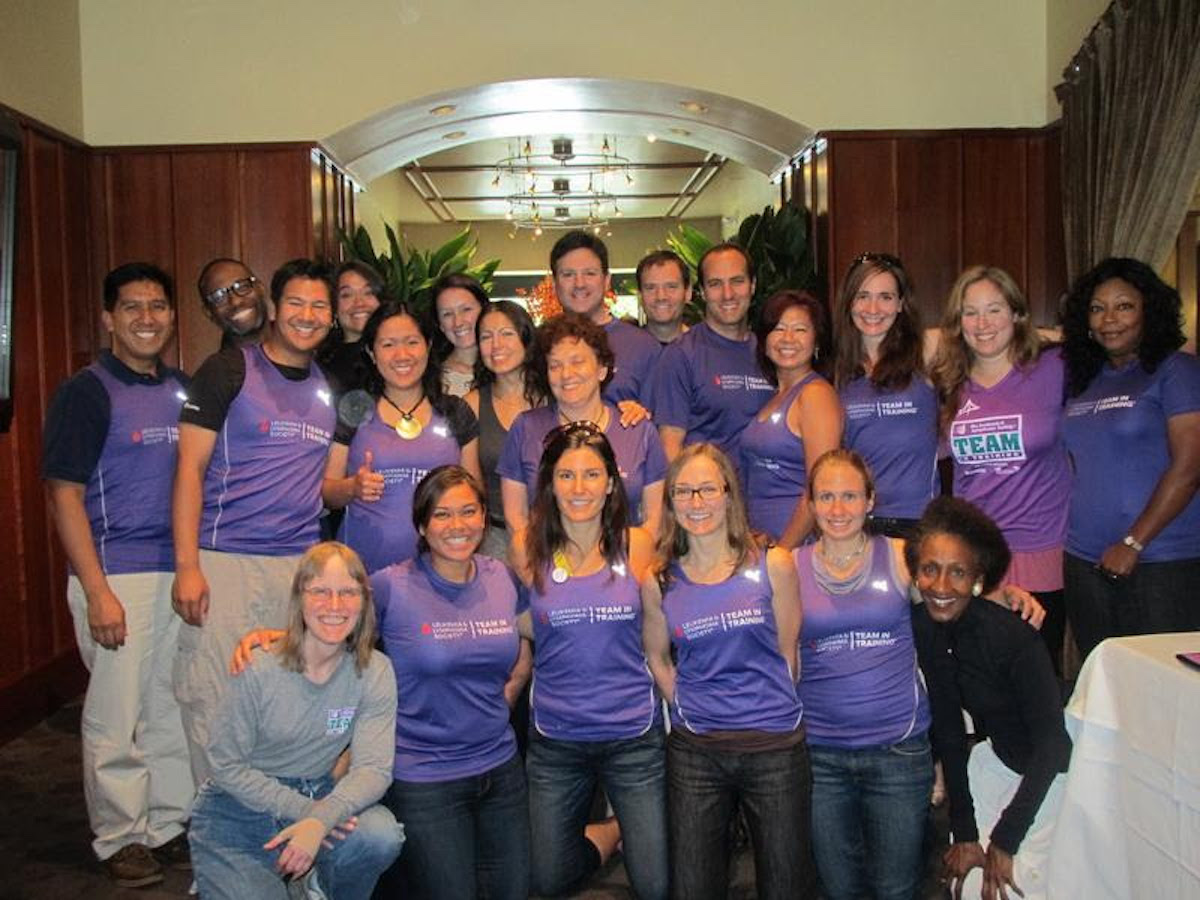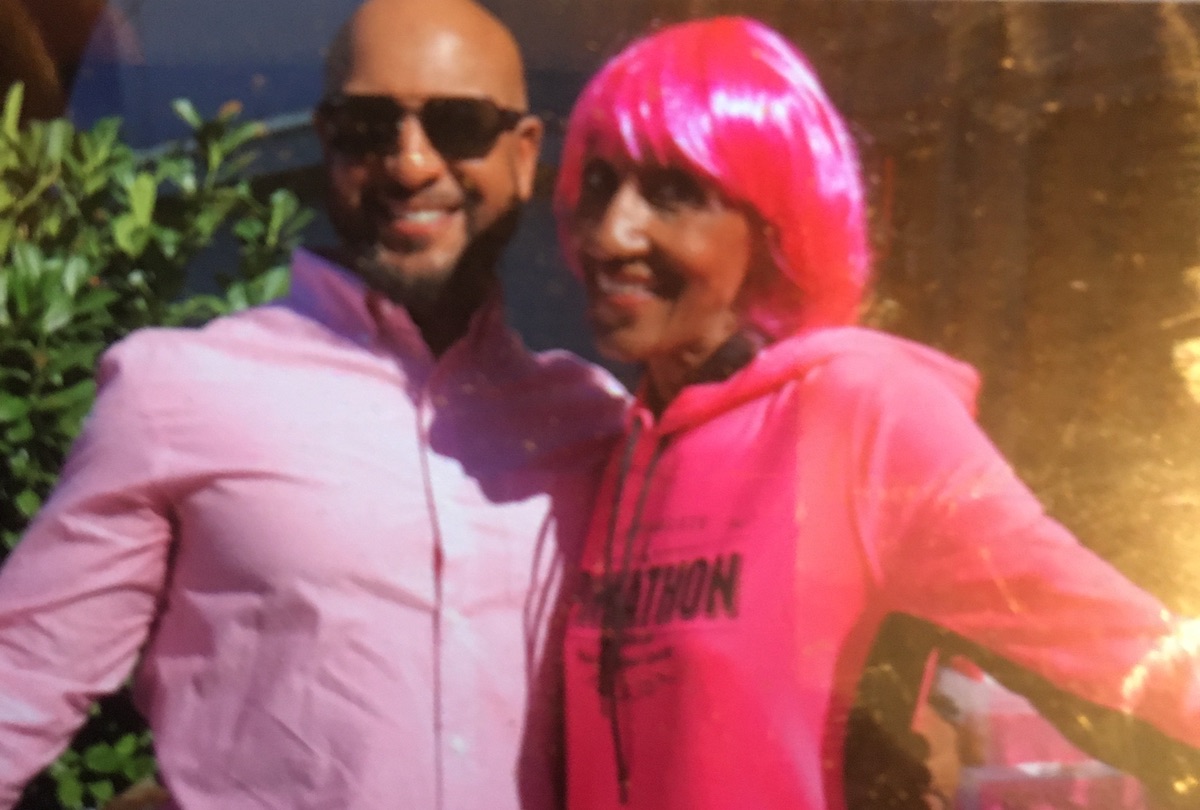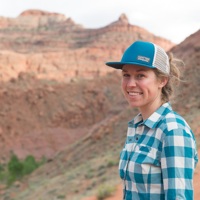Lisa Felder, also known as Mama Lisa, is an icon in the trail running and ultrarunning communities for her longstanding commitment to the sport and for helping others in their run journey. She has completed more than 300 marathons and 111 ultramarathons.
Lisa has been a coach for close to 30 years, both independently and through the Leukemia & Lymphoma Society. After she won her battle with breast cancer, Felder began co-directing the annual Pinkathon San Francisco. With big ambitions and never-ending optimism, it’s no wonder Felder was inducted into the National Black Marathoners Association Hall of Fame in 2015.
Growing Up and Growing Independent
Felder, 75, grew up with six siblings. Amazingly, her mom gave birth to two sets of twins and one set of triplets, though very sadly, several siblings didn’t survive. Today, her family is scattered across the country.
“We had so much fun. I’m very close to my brothers and my one sister who is still living. We call each other twice a day. One of my brothers is in a home because he had a stroke and can’t talk. He needs 24-hour care. All the rest of my brothers are in contact with each other,” said Felder.
At 17 years old, Felder moved from the North Carolina area to Rock Hill, South Carolina, where she attended Clinton College for a business administration degree. Soon, she transferred to Livingstone College, a seminary school, so she could study the Bible as well.
“My father was a minister. I transferred because I wanted to study both administration and business and follow in my dad’s footsteps,” said Felder. “I was average. I didn’t earn all As or Bs. I had a few Cs. I worked hard — I had to work harder than most people.”
A few months before she finished her degree, money dried up and Felder had to leave school. She moved to New York City, where she met her husband, and they eventually had a son. Within a few years, says Felder, her husband’s alcoholism became apparent, he became abusive, and she needed to leave.
Felder recalled, “When he would come in, I would have to take my son and push him under the bed and run for the closet. That sort of thing. I said, ‘My son is too young to go through this trauma and I don’t want him in it.’ I made a plan. I escaped.”
In 1977, Felder moved across the country to San Francisco, California, where a good friend lived, and filed for divorce.
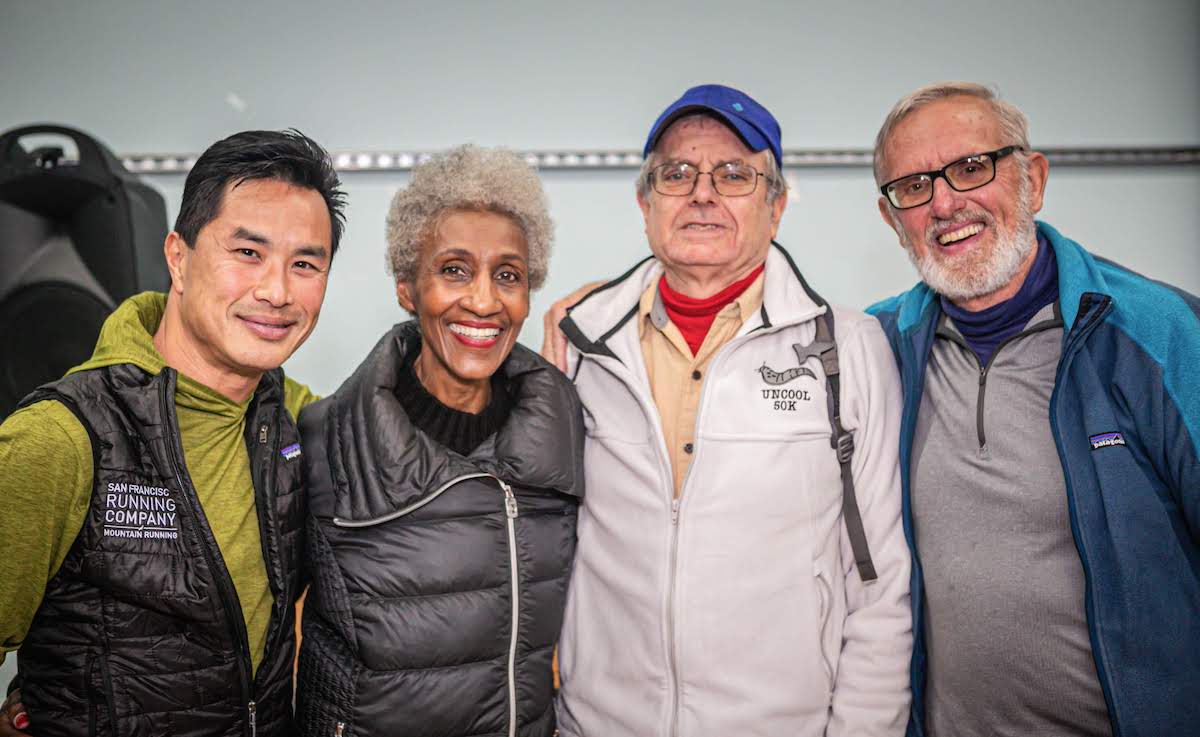
Lisa Felder (second from the left) at a race with friends including Michael Palmer (white jacket). All photos courtesy of Lisa Felder unless otherwise noted.
Finding Running and Finding Herself
In San Francisco, Felder met new people who introduced her to running, and it lit up her life. Her son was on the school soccer team, and she’d get cold watching them practice.
The soccer coach, Arthur Smith, suggested, “Why don’t you run around the field where we’re training?” Felder weighed 238 pounds but decided to give it a try.
“I tried to run and my back hurt — everything hurt. I would stop, walk for a while, then run a bit. It seemed like the field was a mile or longer — it felt so big,” said Felder. Arthur then suggested they run on sand at the beach, so that she could learn how to watch her footsteps and hone a proper gait. She lived close to Golden Gate Park, so she started a routine, running early every morning.
“I would take off early in the morning so that no one would see me. I was fat, everything was shaking, and I didn’t have proper clothing. I’d see this older lady who would run so fast, wouldn’t speak, and was so focused. I thought, What a nasty woman. I found out later that this lady was my son’s principal, a nun, and she was also an Olympic runner,” said Felder, who started learning from and imitating the nun’s running form.
Eventually, Arthur, whom she eventually dated for six years, suggested that they run San Francisco’s Bay to Breakers 12k together. It was tough and took her three hours to finish, but Felder built momentum.
She started running seven miles a few times a week, weight training at the gym, and registered for the San Francisco Marathon the following year. Over that time, she lost close to 75 pounds. Encouraged, Felder decided to go back to school at Golden Gate University, to finish a degree in accounting.
Back then, race registrations arrived in the mail to solicit runners, and there wasn’t today’s marketing over websites or social media. After her first marathon, she received a registration for the Los Angeles Marathon. After repeating the Los Angeles and San Francisco Marathons the following year, she signed up for the London Marathon.
Getting a Coach and Running Ultras
Seventy-five marathons later, Felder was running around Lake Merritt in Oakland, California, when she met an athlete and coach named Alphonzo Jackson. He asked if she needed a coach. Felder didn’t think so, but they were both signed up for the Los Angeles Marathon, so they met up there after the race. They started running together and eventually started dating, building a relationship that lasted for 24 years.
“Alphonzo was so knowledgeable and pointed things out to me while we were running. He told me I needed a watch and needed to dress better: I had mix-matched socks on. He said, ‘A runner should be neat. If you could put on a cap and nice running clothes, you will feel better and probably run better.’
“He taught me everything I needed to know about running, like how to run hills and how to back off. He was the one who introduced me to ultrarunning. He’s a great coach now,” Felder reminisced.
When Alphonzo went to crew his good friend Errol Jones at the Western States 100, he invited Felder to join the crew.
“I said, ‘It’s a 100-mile race? I need to be at work on Monday.’ Alphonzo said, ‘He’ll be done in 24 hours.’ I went and was shocked, elated, and amazed at how those people perform. All night we were running down canyons and climbing out [following the runners]. That’s when I decided I want to run 100 miles. I wanted to feel the pain, see what it takes to do this, what drives a person. I wanted to be that person and know what gets into your mind. I trained hard,” she said.
After Western States, Felder developed a friendship with Jones. One day while running around Lake Merritt, he told her she needed to stay off the pavement to properly train for a 100-mile trail race. She needed to run an ultra, meet other trail runners, and that’s how she’d learn where to run on trails.
Felder did, circa 1995. She met Carol LaPlant and Michael Palmer, the latter of whom rescued her on their first mountain run up Mission Peak in nearby Fremont when the sun set and she got caught in the dark. She had a flashlight, but the battery was dead.
“Michael is a kind, gentle person. He’d stop and say, ‘Lisa, you need to do this and that.’ I learned a lot from him. He was my go-to person to learn from,” Felder said.
Some of Felder’s most memorable days involved ‘epics’ with Carol on 30- to 40-mile training runs.
“I’ll never forget, one day we were running and Carol said she knew how to get around the trails. We ended up off-trail on private property. I got caught in quicksand. An animal — I think it was a wild pig — nearly attacked us. There were overgrown, broken trees we had to bushwhack through. Then we stumbled on the driveway of a wealthy family. They were driving to an opera, all dressed up, and agreed to give us a ride to the closest service station— with the windows down because we were sweaty, smelly, and dirty. I’ve gotten lost with Carol so many times,” laughed Felder.
Her friend Michael advised her to run a different ultra before Western States. “Do something more practical that you will enjoy,” he told her. She signed up for the Vermont 100 Mile in 1998 — and came in third place in her division.
To this day, the Vermont 100 is one of the most classic 100 milers she’s ever run and an all-time favorite race alongside the Arkansas Traveller 100 Mile, Dublin Marathon, and Los Angeles Marathon, “because Muhammad Ali would always lead [in that latter race],” she said.
Becoming a Coach and Fighting Breast Cancer
In 1994, Felder helped implement the first San Francisco Fit team. She led beginner runners on slow runs and educated them on everything: how to pace, breathing technique, body form, and how to dress. The team’s first-ever group was was over 300 runners training for the San Francisco Marathon.
Felder said, “It was amazing. They all had their hand under their chin staring at me. I realized I had so much more knowledge to share.”
Eventually, she became an assistant coach for a team in the San Francisco East Bay for the Leukemia & Lymphoma Society, where she first focused on writing articles and teaching lessons about run products, nutrition, and hydration.
In 1998, she was training a group of Team in Training runners at Lake Chabot on a hot summer day. She gave advice to one runner on the team, Donald Murphy, about using the bandana he was wearing to help keep his body cooler for longer by wetting it and tying it around his neck. He said, “You sound like my mama, so I’ll call you Mama Lisa.” The nickname spread fast and stuck.
The unimaginable happened on December 23, 2009: Felder was diagnosed with breast cancer. “I had just returned from seeing one of our runners who had leukemia and ended up passing away. I got a phone call from my doctor. She said needed me to come in to talk about something important.”
But Felder worked 40 miles away and insisted on talking over the phone. “Now I understand why she wanted me to come in. It’s got to be the hardest thing you’ve ever heard,” said Felder. She had stage four metastatic breast cancer. Overwhelmed and in tears, a team member drove her home from the office.
“The support of the people around me got me through the first few months. Then my sister came and took care of me. I continued to coach and continued to run,” said Felder.
Felder kept coaching. That same year, she wrote an ultrarunning training program for the Leukemia & Lymphoma Society team. She successfully coached 20 runners to complete their first 50-kilometer race.
By 2014, the organization discontinued the program due to a lack of funds. Felder decided to launch her own company, so she could continue coaching ultrarunners: Ultra Fitness Beyond Imagination. Ever since, her company has continued to grow. She additionally models for several brands.
Felder and the Future
Last year, Felder stepped into another responsibility. She started helping her friend Tia Bodington, the race director of the Miwok 100k, recruit runners of color to the event.
“Miwok has so many Hispanic and Asian runners but only a couple of Black runners each year. I thought it was a great idea, because there aren’t that many Blacks doing this sport, and if they are out there, I don’t know who they are. I’ve been working on that project for quite some time.
“It’s difficult to find people of color. Even if you find them and they are good to participate they want to be paid. But, you don’t get paid to do this sport unless you’re an elite runner. It hasn’t been easy. For some Black females, they don’t like to get their hair wet from sweat — it’s sad. Friends also get offended by it. Most of the people I train on my team are Asian or white,” she said.
Felder also lost her home due to financial hardship. “It changed my whole life. I had this home for so many years — 25 years. Then I wasn’t able to take care of it, because I was trying to take care of someone else, and my home situation was failing,” shared Felder.
She moved to Atlanta, Georgia, to her son’s house, but couldn’t find a day-to-day routine. She didn’t have a vehicle and her primary running terrain was on sidewalks. She missed the trails and the bustling running community of the San Francisco Bay Area.
After two months, she moved back, settling into a comfortable condo rental, where she has continued to coach, run, and be a part of an active community. Most recently, she returned to university life, a final time, to wrap up that accounting degree. Over the past few decades, Felder has seen a huge evolution of the sports of trail running and ultrarunning.
“The sport has changed a lot since I first started running ultras. When I started, there was no start line. You’d come up to the race director, he’d give you instructions, and you’d take off. There were no bottle holders, you used duct tape. If someone was injured or sick, runners would need to run to the next aid stations and report it.
“Now there’s the luxury of radios, livestreams, and trackers so you can be found if you get lost. More food is served at today’s races. Now, I see people with trekking poles, which used to be against the rules. We made arm sleeves out of soccer socks. We didn’t have all the nice attire and different shoes. It was not as competitive as it is today. But it was hardcore endurance — you really had to focus on what you were doing.”
Next up for Felder is another trail marathon in early 2022 — in addition to her coaching, race directing, volunteering, and modeling. “I’m so busy, and I like being busy. That’s who I am, and that’s what I love.”
Call for Comments
- Have you met Mama Lisa Felder?
- Do you have any mentors in the ultrarunning world who have done great things for the community?
